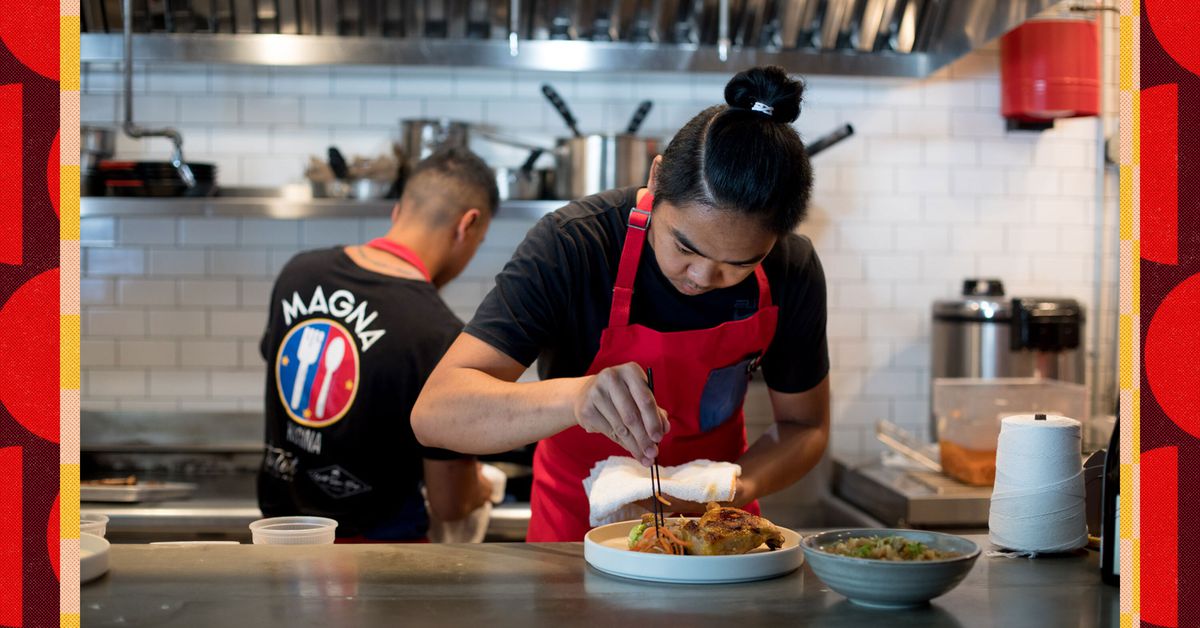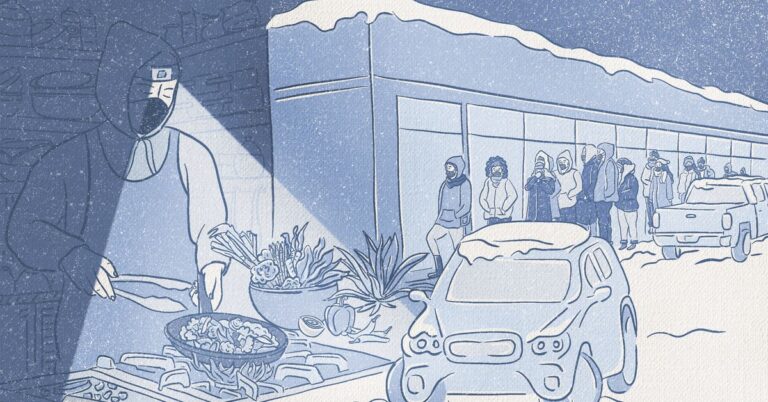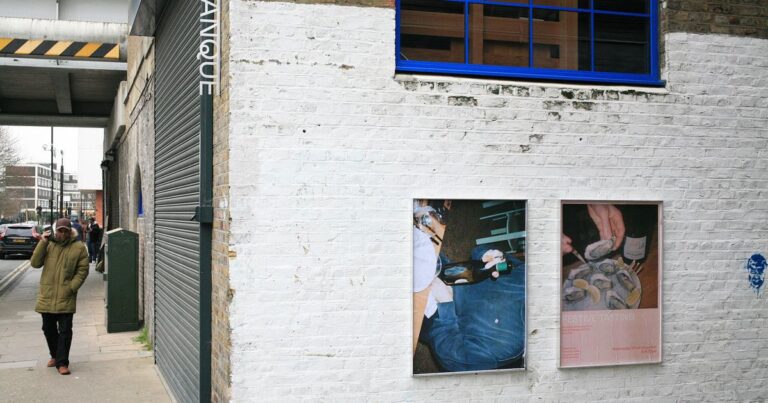Trend: Restaurants Are the Best New Pop-Up Spaces
When chef Libby Willis closed the doors to her beloved, queer Brooklyn diner MeMe’s in November 2020, she did so knowing that now, more than ever, it’s nigh impossible to open an independent food business in New York City.
By necessity, pop-ups have served as an important avenue for these businesses to thrive. In the months following pandemic-related shutdowns and closures, chefs of all stripes got creative, using their forced sabbatical to try out their best ideas in new and interesting ways — creating one of the very few bright spots in an otherwise terrible time. But in order to get those delicious wares to the hungry masses, chefs had to either cook from their own homes or find space to stretch their wings. These fledgling businesses have found surprisingly comfortable homes in already established restaurants, an arrangement that has proven mutually beneficial for both the pop-ups and the spaces that host them.
After MeMe’s served its final brunch in Brooklyn, the space was empty. As she debated her next move, Willis, a 2019 Eater Young Gun, devised a novel next step for her business: a pop-up incubator called KIT (an acronym for “keep in touch”) where queer chefs, bakers, and other industry professionals could build a seedling of an idea into an actual business.
“For me, it’s less about pop-ups and more about trying to figure out how to start and run a small food business in New York City,” Willis says. “This city has so many opportunities and such a captive market, but the barrier to entry is just so great. It really limits who’s actually able to start businesses, and this is the beginning of me trying to find a way to make owning a small business in New York City a little bit more sustainable.”
Since opening, KIT has hosted a wide range of pop-ups and chef residencies, including stunning doughnuts and other baked goods from pastry chef and fellow 2019 Young Gun Zoë Kanan, chef Susan Kim’s Korean pop-up Doshi, and roving Russian restaurant Dacha 1946. In addition to allowing her to spend time with some of her favorite chefs, the space gives Willis an opportunity to share the knowledge she’s learned in her career in the industry. “The community we created at MeMe’s was so special and so impactful to me, and I knew that I had so many resources that I could share with my community,” she says. “This is definitely a way for me to keep the legacy of MeMe’s as a community space alive.”
:no_upscale()/cdn.vox-cdn.com/uploads/chorus_asset/file/23101363/kit_opening_14.jpeg)
For enterprising, new-to-the-game chefs like Nathan Bounphisai, who founded his Dallas pop-up Inusan Onigiri at the height of the pandemic, access to existing restaurant and cafe spaces has been invaluable. Bounphisai launched the pop-up without much culinary experience beyond working in a boba tea shop before pursuing a career in graphic design, which meant he didn’t have the kind of restaurant connections that he needed to find a space to start selling his rice balls. He reached out to boba shop owners and dessert purveyors, looking for anyone who would let him set up shop.
He quickly established relationships with the owners of Sno Tea and Feng Cha, both popular boba franchises in the Dallas-Fort Worth metroplex. In a matter of months, fans started forming lines around the building for his truffle-crab-stuffed onigiri. The onigiri sales were a boost for the establishments that hosted him. Eventually, the tables turned and Bounphisai found that restaurants were reaching out to him instead, offering to host his pop-ups.
“It’s mutually beneficial, I think,” says Bounphisai. “Most of the time, we’re driving more customers into these businesses, and we’re bringing different demographics into these tea shops. At the same time, we also get to take advantage of their walk-in traffic.”
Portland chef Carlo Lamagna ran pop-ups before opening his acclaimed Filipino restaurant Magna Kuisina in 2019. Intimately familiar with the challenges from both, his focus now is on creating a business model that makes it easier for both the pop-ups and his own establishment to operate. “I knew how hard it was to find a space that would not only host you, but actually be accommodating,” he says. “A lot of places I’ve seen in the past just allowed you to set up and then took a good chunk of change from you. Sometimes it would be like, ‘Why am I even doing this? I’m not making anything.’”
Now that he’s got his own space, Lamagna is able to offer pop-up chefs everything from a kitchen to cook their dishes to the tableware on which they’re served. Because Magna is only open on Thursday, Friday, and Saturday, pop-ups can take over the space the other four days of the week. To help cover his fixed costs, like rent and utilities, Lamagna charges the pop-ups a percentage of sales, usually around 10 percent, to ensure that the arrangement is profitable for everyone. Sometimes, an individual pop-up won’t perform particularly well — say they do $500 in sales, which only nets Lamagna a $50 cut — but that’s usually balanced out by a wildly popular pop-up that can do thousands of dollars in business in one night.
“It’s not big percentages that we’re pulling in, but they do add up. I’m not going to price-gouge these chefs because I like them, and I want them to be successful. And the more success that person has, the more success I have,” he says. It seems to be working: Chefs who have brought their pop-ups to Magna have gone on to find permanent homes for their events. Some are even in the process of opening their first standalone restaurants, like chef Luna Contreras’s compelling Mexican pop-up Chelo.
“I believe in good karma, you know. If I give back to the community, it’s going to give back to me,” Lamagna says. To him, that’s more important than the money he brings in from any given pop-up. “The restaurant is just sitting empty when we’re closed, so why not allow these talented people to fill it with food, love, and community?”






